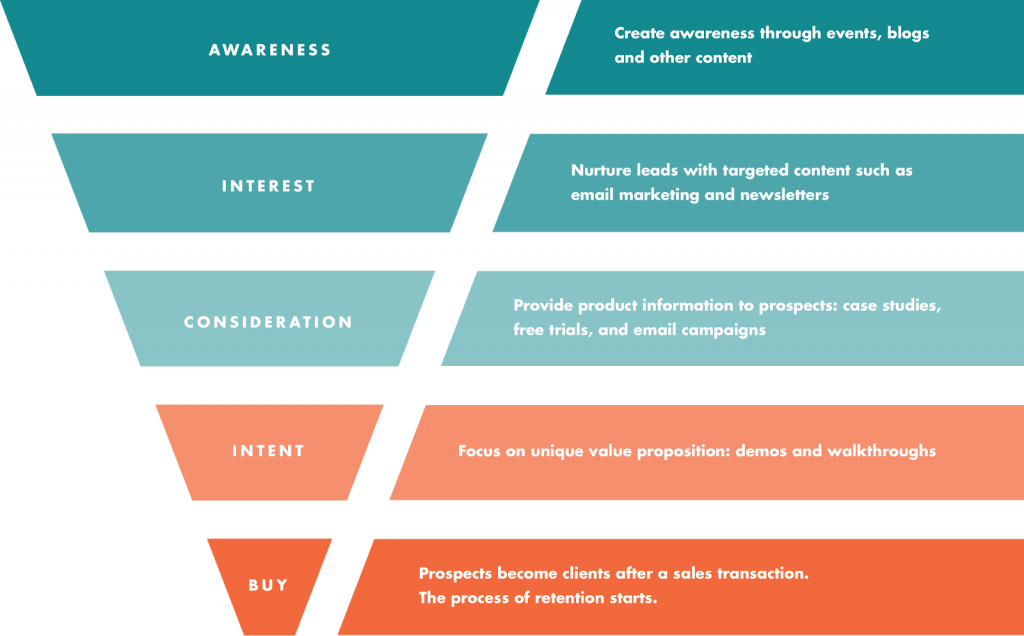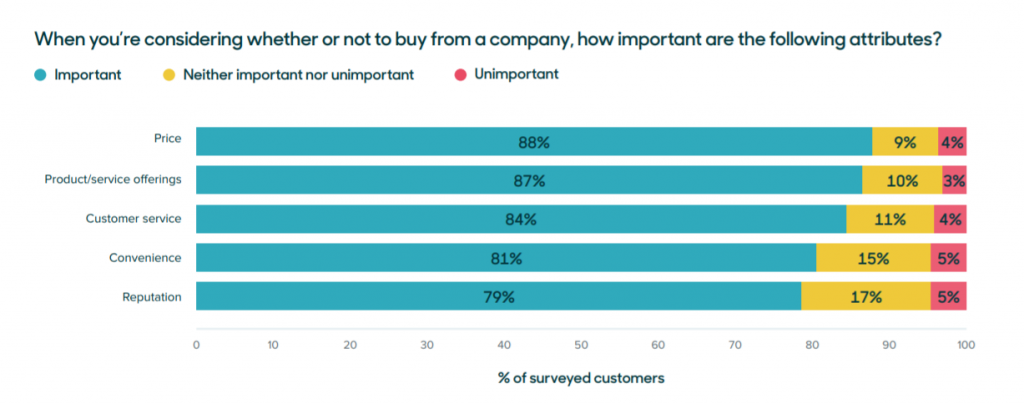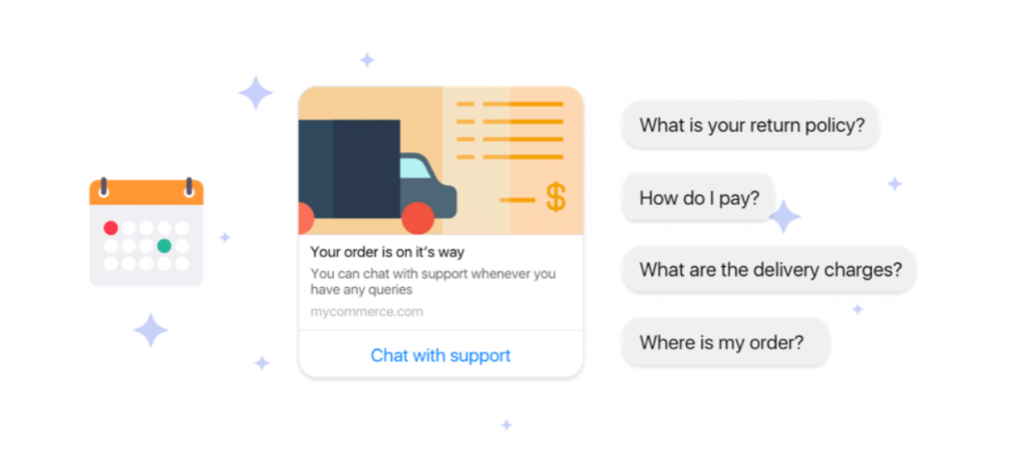Your online store is up and running, and the objectives set out in your ecommerce business plan are reached one by one. But it’s not until the first point of crisis that you realize you need an assistant; otherwise, your business activities will start slipping out of your hands.
Roles in ecommerce vary from those in offline retail. In the digital context, your store should follow the unwritten rules of the online world: keep up with an attractive website design, stay visible to the online audience, produce engaging content, etc. And unless you’re a jack of all trades, you need people assuming all these ecommerce job responsibilities.
In this article, we’ll deal with the eCommerce team’s roles and responsibilities that not only keep a business afloat but ensure operations and activities are managed effectively. You’ll see who does what in ecommerce and why you need specific job positions to be filled. You’ll also see the options of where to hire the right person for the role.
Without further ado, let’s run down a few ecommerce job descriptions, team by team!
Technical Roles and Responsibilities in Ecommerce
IT specialists are the backbone of any ecommerce business. Given that it takes only 0.05 seconds for users to form an impression of the website, you really want your website to run fast and smooth. The technical team not only builds your store from scratch but also secures it from daily bugs, errors, and possible code issues.
Here are a few technical roles and responsibilities in eCommerce you should consider for hire.
Web Developer
Ecommerce web developers take care of a website in terms of both functionality and performance. This role may cover the following responsibilities:
- making front-end and back-end alterations to your store appearance and performance;
- updating and installing plug-ins and security patches;
- integrating your online store with third-party systems in case you want to customize it or automate some everyday processes;
- detecting and reporting any operational issues on the website and fixing them fast.
Almost all ecommerce platforms are built on a backend language, like PHP. A web developer should have the necessary technical expertise in the programming language of your chosen ecommerce platform.

At Elogic, we have vast experience in Magento store development, maintenance, and integration. Check out our services and get in touch if you seek a skillful IT team for your online business!
Technical SEO Specialist
A famous saying goes, “The best place to hide a dead body is the second page of Google search.” And it’d be funny if it weren’t so true! Backlinko click-through-rate (CTR) study found that #1 Google search result has an average CTR of 31.7%.

Filling the role of an SEO specialist in eCommerce means you want your present and potential customers to easily find you. An SEO expert makes an e-commerce website attractive for a search engine in the following ways:
- tests and tracks how organic users reach your e-store — keywords, page positions, etc.
- analyzes how well your website performs in the search engine — rankings, site crawling and indexing, page loading speed, website architecture, etc.
- suggests and actually removes obstacles to improve web positioning in the search engine results pages — broken links, redirects, etc.
So hiring a SEO manager is of the utmost importance to all brands who want to have a strong online presence.
Marketing Roles in Ecommerce
Marketing team is basically the creative core of your business. According to 2020 Not Another State of Marketing Report,
- about 70% of businesses are actively investing in content marketing;
- Facebook, Instagram, and Twitter are the most commonly used social media platforms in ecommerce yielding high ROI;
- in 33% of cases, paid advertising increases brand awareness, and in 24% — impacts direct sales
Marketers clearly allow brands to develop their own personality and communicate it to the customers. Here are some of the roles and responsibilities you should consider for your eCommerce business.
Copywriter / Content Manager
Your website filled out with punchy writing will trigger sales, and a copywriter can help you stand out from the crowd noise and limited attention. A writing professional will
- produce text and visual copies for your product, category, and about pages for informative and engaging purposes;
- publish and update text to improve website SEO — yes, quality content will also help you rank high in search engines;
- be the voice of your brand with catchy headlines and memorable website copies.
Skills of an expert copywriter will also come in handy in your blog, email marketing campaigns, or social media posts. If placed in a team with a technical SEO specialist, a copywriter can boost your ROI and attract (and convert!) more customers.
Marketing Specialist
A marketing specialist is essential for ecommerce. In an SME, this role for e-commerce may be assigned to a customer support representative, but in a big enterprise, a marketing specialist supervises the whole team.
In general, a marketing specialist is responsible for
- setting up marketing goals, campaigns, and schedules for various product categories across emails, web advertisements, social media, SEO, print/display ad designs, etc.;
- executing the plan, including developing and updating product content to help sales of that product;
- reporting on marketing channel KPI performance and conducting A/B testing.
Mind that a marketing specialist is not exactly the same as a copywriter. A marketing specialist analyzes buyer’s awareness in relation to the brand and tailors the content (or delegates this task to the copywriter) to fit the profile of a particular audience.

Social Media Manager / Outreach Specialist
The role of social media in ecommerce can’t be underestimated. An average user spends about 3 hours/day on social media, so this ecommerce channel presents a lucrative marketing opportunity.
An SMM manager can help you not to miss out on it and will
- drive user engagement on popular channels, like Twitter, Facebook, Instagram;
- monitor social media analytics collecting customers’ data on who they are, where they come from, whether their actions bring traffic to the main website;
- look for partners and influencers who would promote your brand.
Many ecommerce platforms provide specific plug-ins for social media management. For instance, Magento Social plug-in automatically connects your store to your Facebook account and allows you to sell products via social media advertisements. An SMM specialist gleans insights from your social media accounts and connected plug-ins and turns them into actions.
Magento customer extension development is one of our lines of business at Elogic. Contact us if you need to develop an extension for more insights from your online store.
Customer Relationship Roles in Ecommerce
A customer support team should always be in place if you want to win the trust and loyalty of your clients. According to the Zendesk Customer Experience Trends Report 2019, customer service is one of the key factors when considering whether or not to buy from a company — outranking both convenience and reputation.

Customer Service Representative
A customer service representative is the first point of a client’s reference to the brand. Well-instructed support reps ensure that each customer — both present and potential — have a pleasant experience with the brand.

The role of a customer service representative includes
- responses to the customers’ chat, email, phone inquiries;
- follow-ups on product orders as well as assistance with after-sales service issues (for example, with refunds and returns);
- liaison with logistics and back-office operations.
Customer Experience Analyst / CX Manager
At the first glance, the role of a customer experience analyst may not be that important to maintaining good relationships with customers. However, this role in ecommerce accounts for the analysis of customer interactions with the brand and devising ways to improve them.
Specifically, the responsibilities of a CX manager include
- collecting client feedback and measuring customers’ satisfaction;
- analyzing the data and identifying issues;
- creating reports and interpreting the results for the management team.
Case in point, the customers are constantly asking questions about the product descriptions. It’s the job of a CX manager to spot the issue, delegate it to the respective manager (like a copywriter to re-write the descriptions), and track customers’ response to a new solution.
Managerial Roles in Ecommerce
Ecommerce managers and directors lead the entire business team to success by managing the inventory, selecting products for sale, and look over returns.
Category Manager
A category manager in offline retail is responsible for product optimization, including the prices, product selection, and inventory management. The role and responsibility of a category manager in eCommerce are often performed by a business owner who
- monitors analytics to spot the changes in customers behavior and in consumer trends;
- analyzes the store’s pricing and promotions strategy;
- keeps an eye on the product procurement strategy and fosters relationships with vendors;
- develops budget and forecasts revenue for a product.
Basically, a category manager in ecommerce is the glue that holds the whole business together. For instance, if you sell jewelry online, you should negotiate with vendors of precious metals, conduct competitor’s analysis to identify the proper pricing, and set out your sales goals and marketing objectives — all at the same time!
An experienced category manager will come up with a solution for suppliers, improve management inside your company, and keep track of spending and revenues.
Staffing Solutions
All the abovementioned roles in ecommerce are never like gold dust; you just need to find where to source them for your business.
In general, ecommerce businesses have three staffing solutions.
Freelancers
Freelancers can be found on websites like Advisable, Upwork, and Freelancer and will work for those merchants who seek a more affordable option for their projects.
Pros: They often upskill themselves, so you can find many categories geared towards a specific skill set. In search of positive reviews and recommendations, freelancers try their best to deliver superb results. After all, their income and future projects depend on the present client satisfaction.
Cons: They rarely work on a long-term strategy for your business but rather implement the specific tasks for your project one by one. You might also need a backup plan while working only with freelancers; for instance, if they get sick, your project’s progress might be hindered.
Freelancers are ideal as a flexible workforce working on-demand on specialized tasks. So if you want to boost your store’s social media presence, a freelancer can perfectly fill in the role of an SMM manager.
In-House Teams
In-house teams act as a “family” taking care of the future growth of a company. They are deeply involved in the inside operational processes and more vested in your business progress.
Pros: You have a say in your employees’ salary and schedule, so you won’t face any problems with staff availability for a certain task or their (un)affordability. There’s also more engagement between the employees, and the issues are fixed faster and the staff is more motivated to grow.
Cons: Maintaining an in-house team may cost you more, including social security and medical expenses. Filling the role can also be a tiresome process as you’ll have to spend time looking for a top candidate, interviewing him/her, and coordinating an onboarding process.
In-house teams are ideal for large enterprises requiring constant project upkeep in collaboration with other business departments.
Agencies
Agencies take the best of the two worlds: your work is outsourced as in the case of freelancers, but your cooperation will be much longer as agencies provide project support and maintenance, like in-house teams.
Pros: Agencies are an established group of experts that manage, plan, fix bugs, measure KPIs. You don’t need to worry about your business goals and will receive progress reports on your tasks. Agencies are usually paid an hourly rate and offer a variety of services.
Cons: Agencies may have many clients, so it may seem they are less dedicated to your brand in particular. You might have to deal with scheduling conflicts — be it because of a different time zone or because, well, you’re not their only client.
An ideal merchant hiring an agency is the one who doesn’t want to get involved in all the details of the project but would rather focus on results. You’ll get high-quality services for a decent price — something that all ecommerce business people strive to.
Fill in technical roles in your ecommerce project with Elogic!
Technical support is a key to an ecommerce business. Elogic is a certified ecommerce development agency that will take all the burden of building and maintaining your e-store off your shoulders.
If you seek technical staff to fit your ecommerce job descriptions, we’ll be happy to help! Just contact us and tell us about your Magento project.
Enhance your existing team with our seasoned ecommerce developers
Hire nowRead more: How To Start An Ecommerce Business: The Ultimate Step-by-Step Guide


